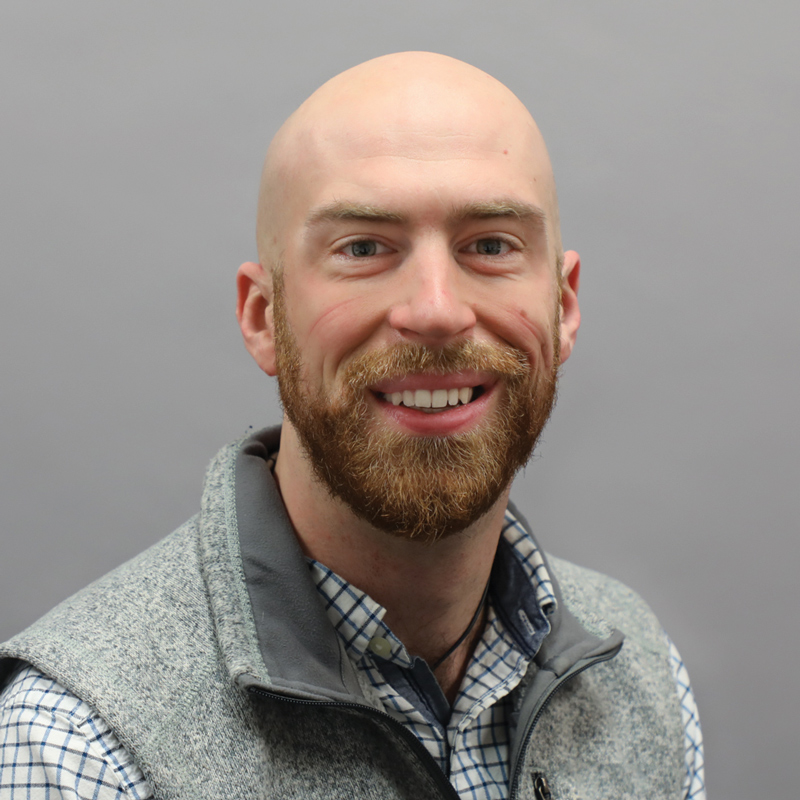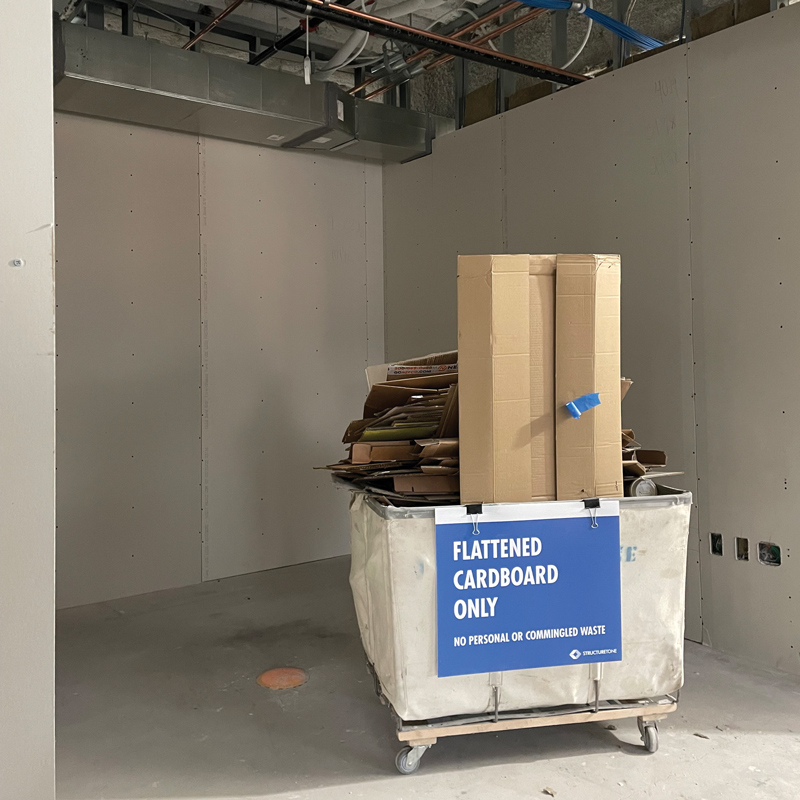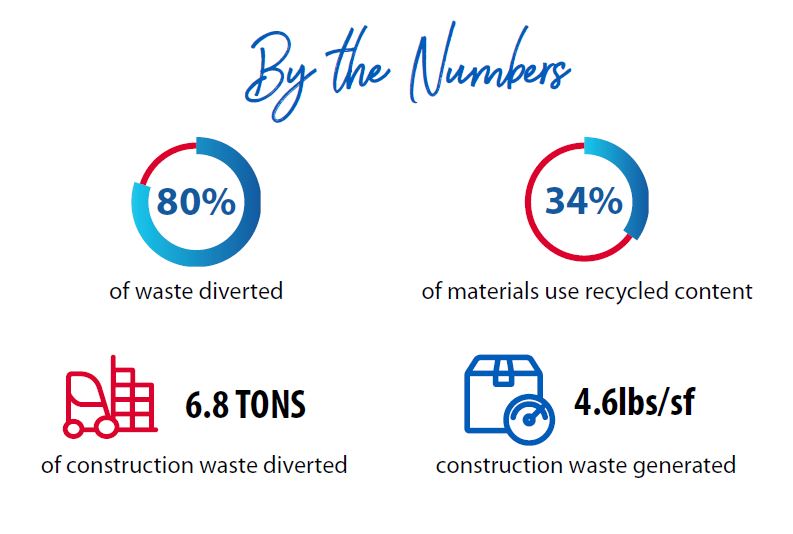
By Michael Orbank, Sustainability Manager, Structure Tone
In late 2021, Schrödinger, a company whose physics-based computational platform is transforming the way therapeutics and materials are discovered, retained the Structure Tone Boston team as a construction management partner to help build their Cambridge, MA office. With its Kendall Square location and spectacular views of Boston and the Charles River, we knew the space would be special. But as the team began focusing on the project’s lofty sustainability goals, the possibilities of piloting even better building practices became all the more exciting.
The project team made the choice early in preconstruction to pursue LEED certification for the interior fit-out and added Fitwel and WELL Health & Safety Rating during the design development process. Through a combination of owner priorities, building management oversight, design team choices, and construction management guidance, this fit-out was able to achieve much more than originally thought (see “By the Numbers” for more).
A highlight of the project is the piloted waste diversion program Structure Tone introduced early on in construction. By making the choice to site-separate materials in an organized fashion, this project was able to go above and beyond typical industry waste standards. Implementing site training, developing waste signage for hampers, and collaborating with the Center for EcoTechnology and the waste hauler, we were able to divert approximately 80% of construction waste. After all reports were finalized, the project achieved exemplary performance by only generating 4.6 lbs of waste per square foot of project space. Overall, 6.78 tons of construction material were diverted from landfill, and the Center for Eco Technology shared the case study across the Commonwealth of Massachusetts to showcase these emerging best practices in waste management.

Even with COVID-related supply chain delays and equipment lead-time additions, the project team was able to adapt to changing circumstances and work within the client’s budget and needs. Pursuing LEED Gold, WELL Health & Safety Rating, and Fitwel Two Star certification, this “small project” was able to plan out and execute on several sustainability goals set early in the project’s schedule.
The ultimate end goal for the built environment in Massachusetts is full deconstruction and material reuse. However, Structure Tone understands that before we can run, we need to walk, and this project allowed us to begin to stretch our legs. By showing that small-scale site separation is possible, especially in a project that is looking to achieve such high standards, this program’s success further bolsters the idea that early planning and acceptance of sustainability is critical in successful implementation.

Click to watch a case study video shot during construction, showcasing some of the best practices in waste diversion.
